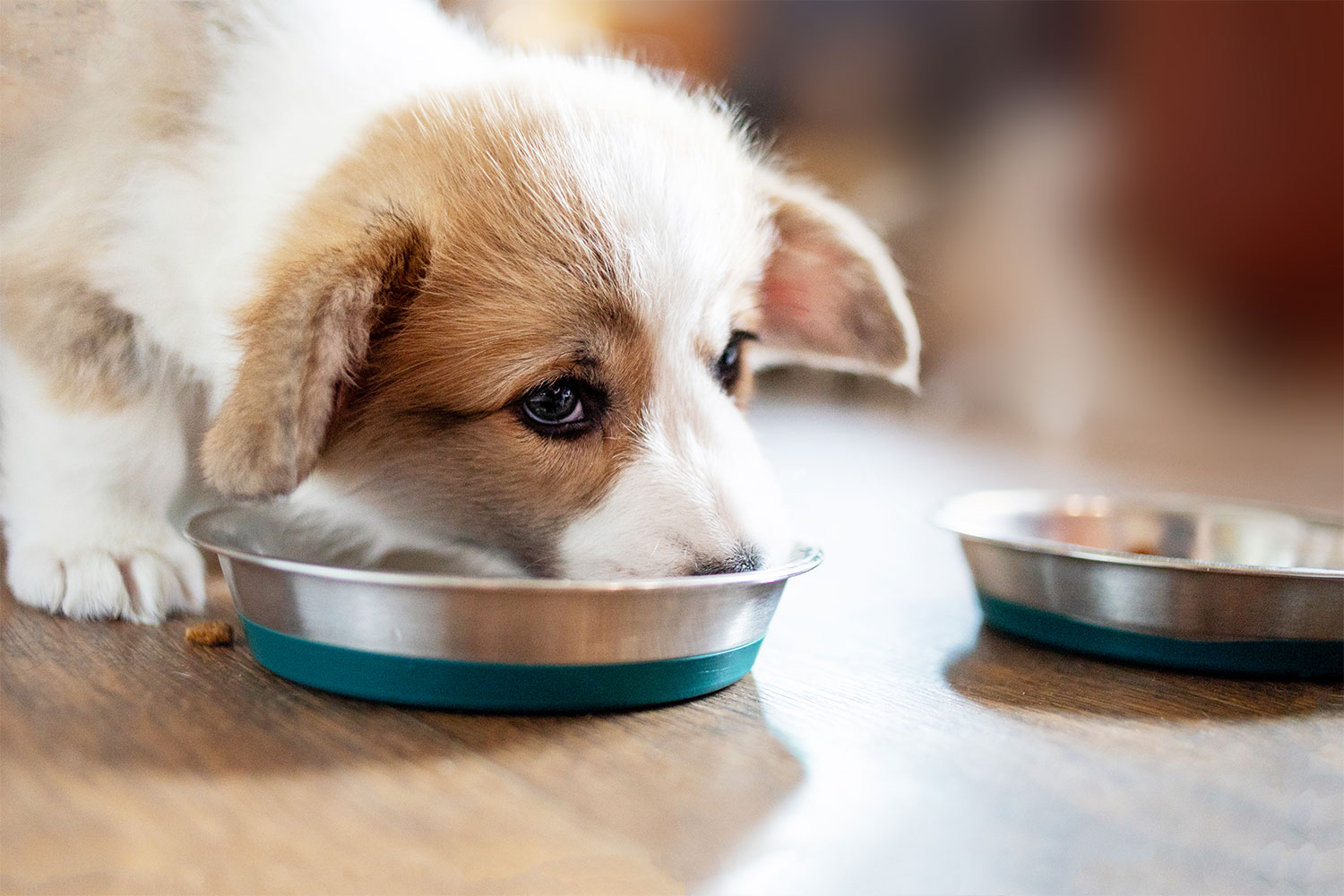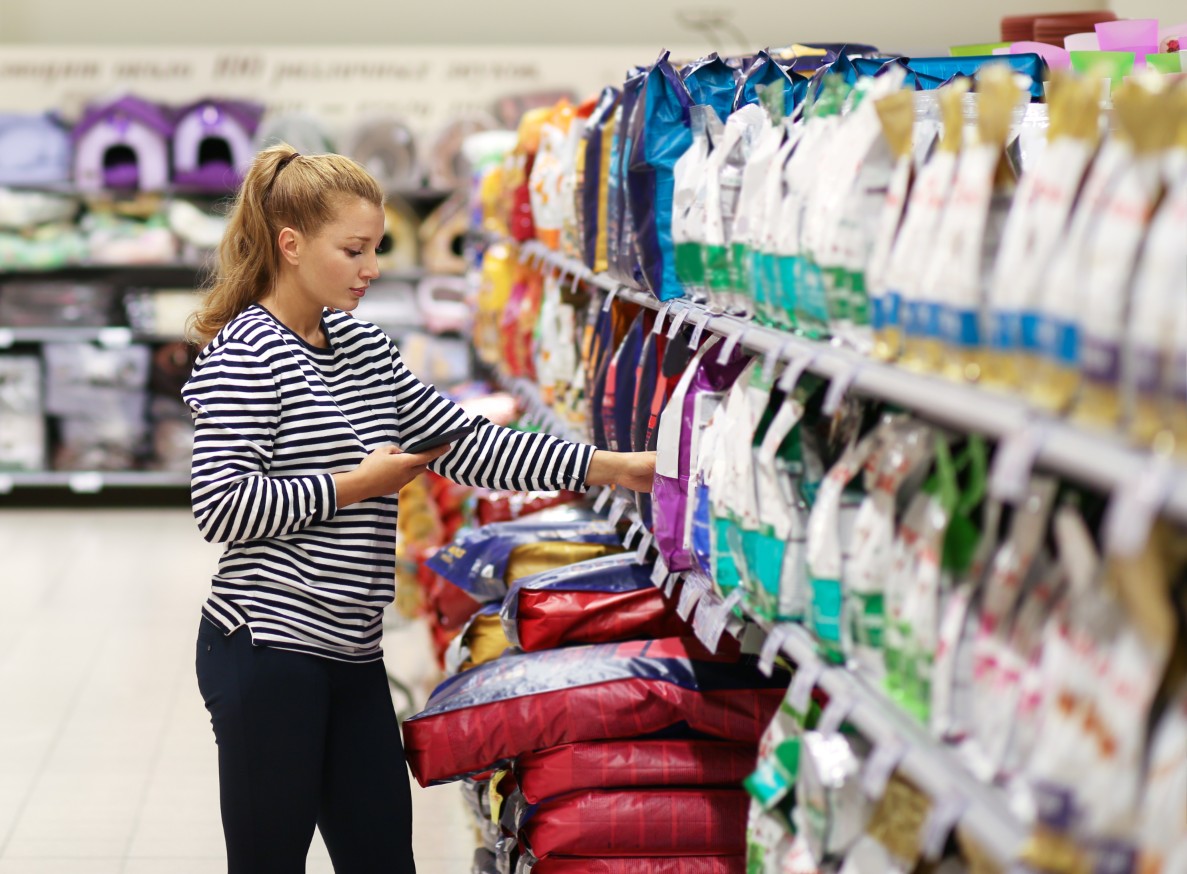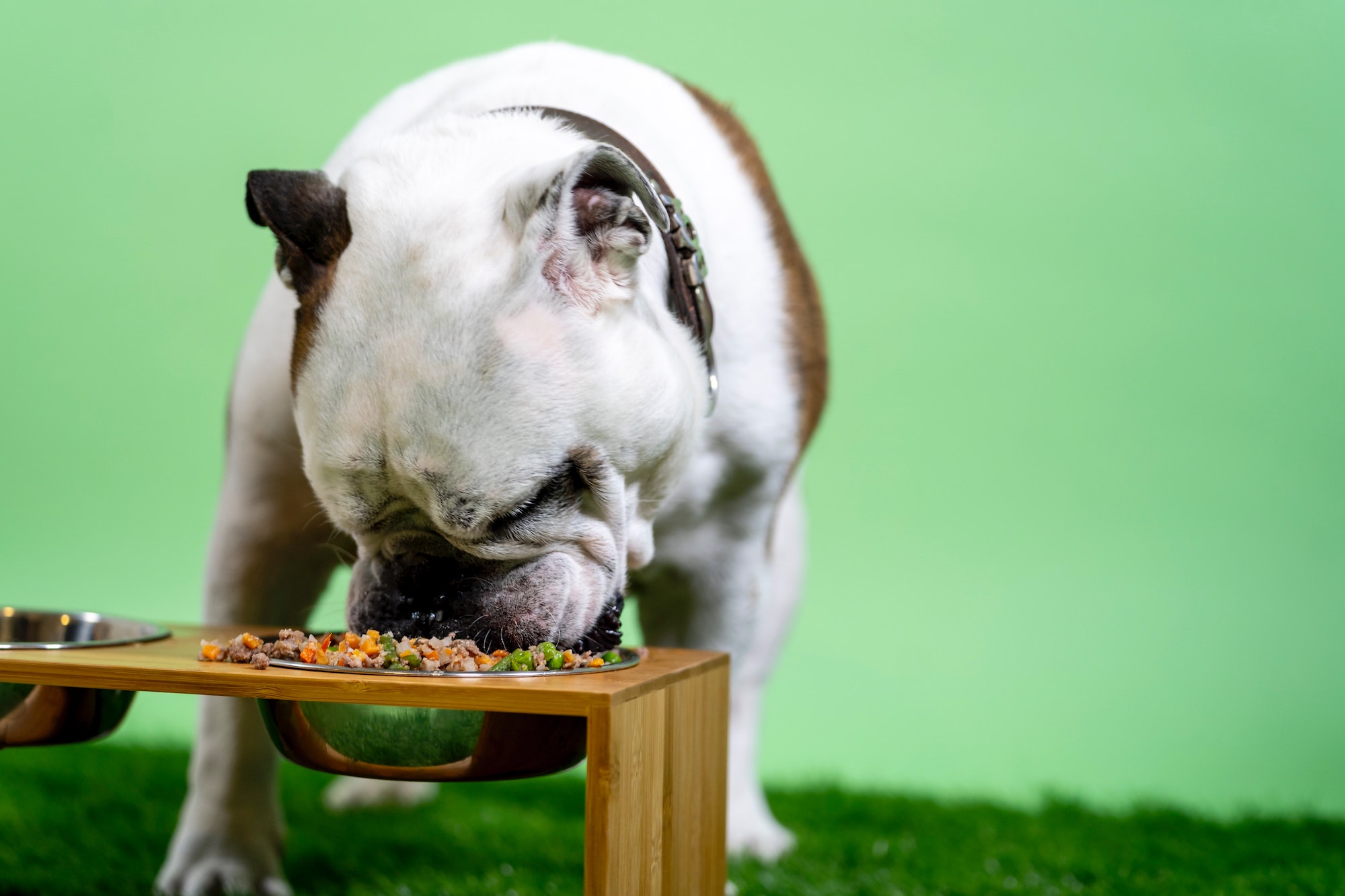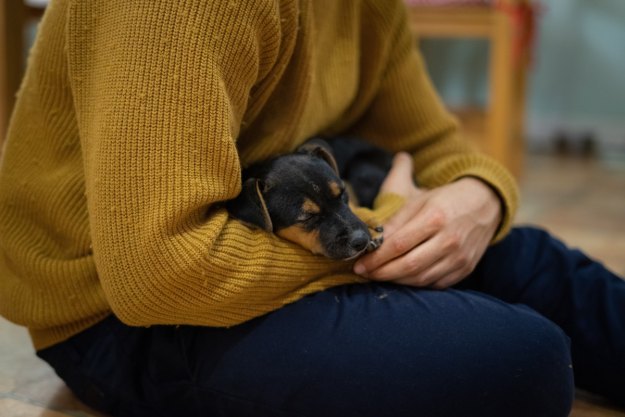Congratulations on your new puppy! With a healthy start and proper nutrition, your four-legged fur baby will grow into the happy and strong life companion you’ve always wanted. Good eating habits depend on your dog’s age and change as your puppy grows. This guideline helps you establish a puppy feeding schedule to make sure your pooch gets the nutrition they need from day one.

First six to eight weeks
The first six to eight weeks of your puppy’s life are crucial to ensure they get the antibodies that protect them from unwanted diseases. During this time period, the best source of nutrition for your baby puppy is their mother’s milk. Just like human babies, puppies should be allowed to nurse on demand to keep them strong.
If your puppy’s mother suffers from eclampsia or mastitis, they may not be able to breastfeed their puppies. In this type of situation, you need to provide your puppy formula in a bottle. These milk replacers contain all the nutrition your puppy needs and are available at all major pet stores.
From eight weeks to six months
After the first few weeks of life, your pup is ready to wean to solid food. This is a gradual process that takes two to three weeks to complete. Talk to your vet and select a high-calorie puppy food that meets their dietary needs.

Once you’re ready to start weaning, introduce the puppy food by mixing it with formula. Blend your dog’s new food with the milk replacer and offer the gruel three to four times a day. If your puppy takes it well, you can slowly reduce the amount of milk until you eliminate it altogether.
This gentle process ensures that your puppy doesn’t suffer from an upset stomach and adapts to solid food. It also starts to get your pooch on a regular feeding schedule, which is important for housetraining and their development.
Keeping in mind that every puppy has a different metabolism and energy levels, these are the basic feeding guidelines for puppies under six months old:
- Toy breeds usually eat four to six meals per day.
- Medium-sized puppies need three meals every day.
- Large breed puppies require three to four meals per day.
From six to 12 months
By the time your puppy hits six months of age, they’re more mature and grow less rapidly. This means that their bodies need less frequent feedings and can graduate to two meals per day. Keeping similar portions to what your puppy was eating before, simply eliminate other meals and limit them to one morning and one evening feeding. Doing so helps prevent excessive weight gain and other health concerns.
After your puppy is one year old
Around their first birthday, many puppies are considered adult dogs. Of course, they’ll always be your baby but their nutritional needs change at this point and it may be time to switch them to adult food. Consult with your dog’s vet to make sure they’ve reached maturity, because larger breeds may take up to two years to fully develop into adult dogs. In general, these are the maturity patterns of different breeds:
- Small breeds up to 30 pounds mature between 10 and 12 months of age.
- Medium breeds up to 80 pounds reach maturity between 12 and 16 months.
- Large breeds that weigh over 80 pounds may not reach maturity until they’re two years old.
Once your vet determines that your pooch has reached maturity, switching to adult food should also be a gradual process. Start by adding small amounts of adult food to their puppy food, and gradually increase the proportion of adult food until you’ve made a full transition. This process should take one to two weeks to avoid upset tummies.
Other things to consider

Foods to avoid: Paying close attention to the ingredients in your dog’s food helps avoid corn or meat by-products. For best results, look for brands with meat as their first ingredient.
How not to overfeed: Free feeding your dog often leads to weight problems and health complications. If your vet determines that your dog is overweight, limit your dog’s intake and adjust their diet as recommended by the doctor. Sticking to a schedule helps avoid overfeeding and keeps your dog regular.
Considering fresh food: Many dog parents prefer fresh dog food over kibble or processed wet food. Whether you make natural dog food at home or buy it from a store, remember that puppies have different nutritional needs so make sure you’re feeding your pup the right food for their age.
Learning how much to feed a puppy is a matter of experience and your dog’s individual needs. By providing your pup with an age-appropriate diet and a feeding schedule, you can keep them healthy and strong. Good eating habits are key to preventing future health complications so you and your furry friend can enjoy each other’s company and a lifetime of love.
Editors' Recommendations
- The Best Dry Dog Food of 2023 for a Balanced Diet
- Taking your dog’s collar off at night: Safe move or safety risk?
- How to tell if your older dog’s health decline means the end is near
- My dog is shaking and acting weird – should I worry?
- Xylitol is dangerous for dogs: 10 surprising products that contain it as a hidden ingredient



